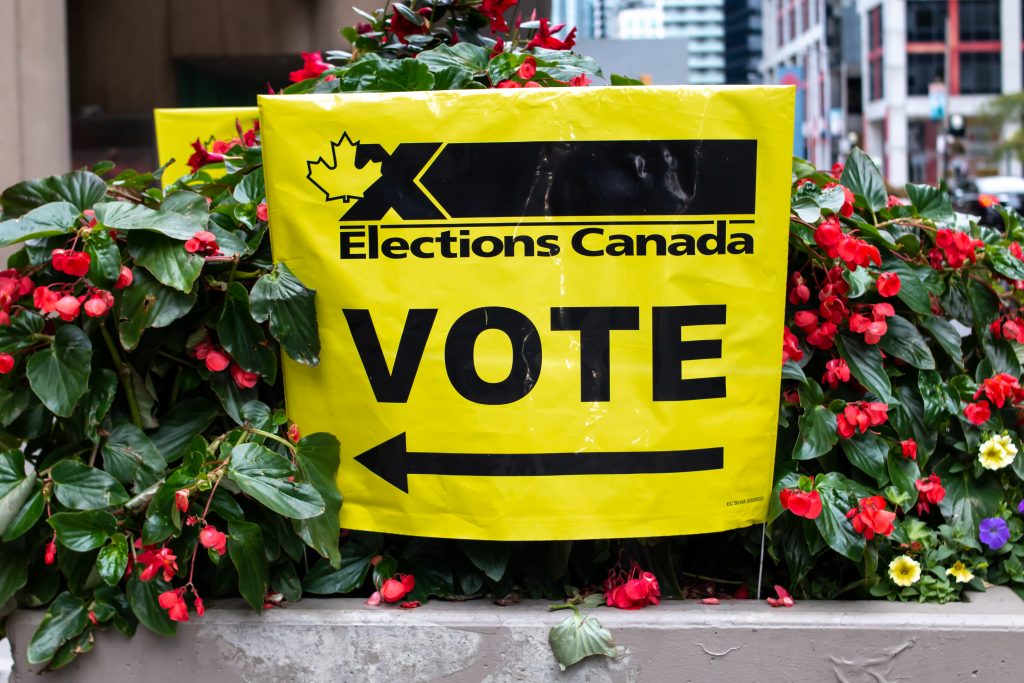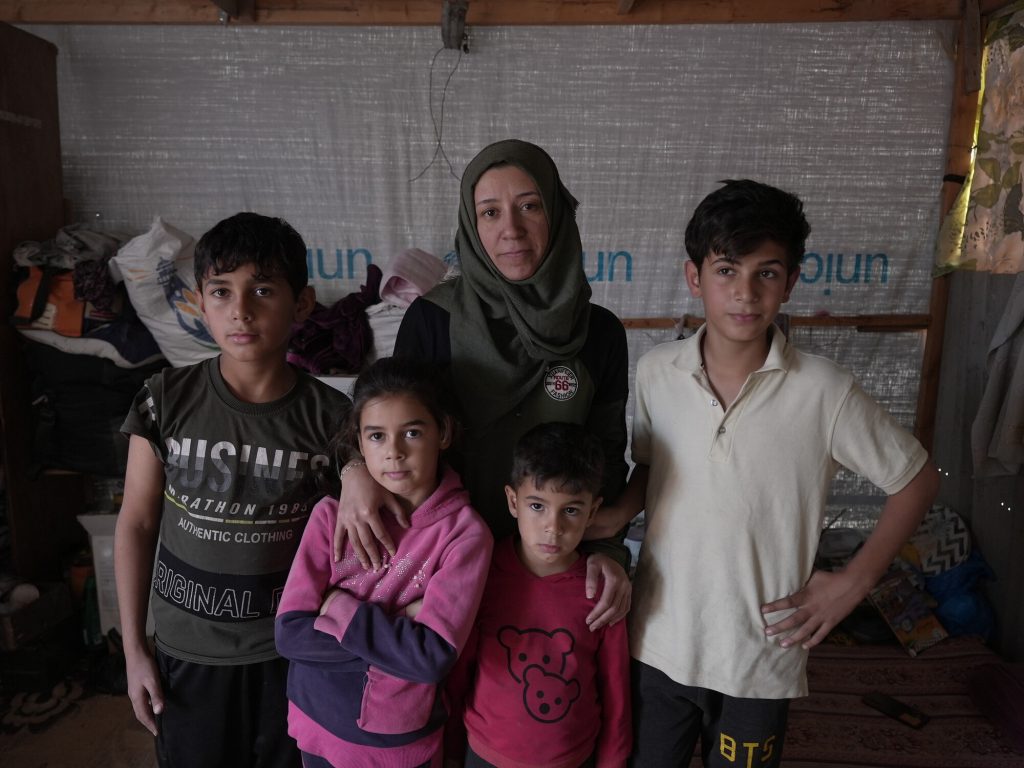Open Letter to PM Trudeau and Minister Freeland on COVID-19
Oxfam Canada, together with 60 women’s rights and feminist organizations, sent a letter to Prime Minister Justin Trudeau and Finance Minister Chrystia Freeland to provide recommendations to ensure the new Taskforce to develop an Action Plan on Women in the Economy is inclusive, intersectional in its approach and effective. Oxfam applauds the government’s recent Throne Speech commitment to establish this taskforce on women and the economy, as a result of the disproportionate impact of the pandemic on women in Canada. While the economic fallout has impacted everyone, not all challenges are equal. The underlying conditions of economic inequality (low wages, precarious employment, a lack of labour protections) in women-majority fields (retail and service roles, the care sector and the nonprofit sector) have contributed to challenging employment conditions for women concentrated in essential occupations on the frontlines of the pandemic.
It is no coincidence that Black, Indigenous and racialized women, including recent (im)migrants, women living with disabilities, senior women and members of the 2SLGBQTI+ community are overrepresented in these jobs. The Taskforce and Action Plan on Women in the Economy has the potential to deliver a feminist economic recovery for all. However, the success of this taskforce will be contingent on its composition and mandate, where it is housed in government, the financial resources it is given and the ongoing commitment of the government to take up the taskforce’s recommendations. The only way we will overcome the crisis is to make the economy work for women, and a feminist and intersectional approach to economic transformation is critical to realizing that potential.
Read the letter below.
Dear Prime Minister Trudeau and Minister Freeland,
The economic downturn caused by this pandemic has had a disproportionate impact on women. The underlying conditions of economic inequality such as low wages, precarious employment and a lack of labour protections in women-majority fields (retail and service roles, the care sector, and the nonprofit sector) have contributed to challenging employment conditions for women concentrated in essential occupations on the frontlines of the pandemic. It is no coincidence that Black, Indigenous and racialized women, including recent (im)migrants, women living with disabilities, senior women and members of the 2SLGBQTI+ community are overrepresented in these jobs. Throughout the pandemic, school closures and inaccessible child care has made it difficult for women to participate in the paid workforce, even for those working from home as women spend almost double the time than men on unpaid care work. As a result, women’s labour force participation has dropped to the lowest in 30 years, and the pandemic-induced recession has been labeled a she-cession by economic experts.
Given these circumstances, we welcomed the recent commitment in the Throne Speech to address women’s economic inequality through the creation of a taskforce to guide an Action Plan on Women in the Economy. The taskforce has tremendous potential to steer Canada towards a feminist economic recovery that lays the foundation for a more equal, inclusive and sustainable economy. However, the success of this taskforce will be contingent on its composition and mandate, where it is housed in government, the financial resources it is given and the ongoing commitment of the government to take up the taskforce’s recommendations.
We recommend that the taskforce include women’s rights and gender equality organizations – specifically those taking an intersectional approach and working in service of Black, Indigenous and racialized women to meaningfully address the intersecting impacts of systemic racism, sexism and economic inequality. Centering the voices of women in all of their diversity, no matter what their immigration status or country of birth, will be critical to ensuring the action plan uplifts the most marginalized. This includes women with precarious immigration status (migrant workers, international students, refugee claimants, women without or with “lapsed” immigration status) who are typically excluded or do not qualify from protection policies (such as CERB/CRB and tax-based benefits tied to residency requirement).
Ensuring that women’s rights organizations support the development, implementation and monitoring of the Action Plan will inform economic recovery plans that support all women. A critical component of the recovery must be a progressive vision of a care economy that values women’s paid and unpaid work and expands and protects the care sector. Solely focusing on “business, boards, entrepreneurship and STEM” as a pathway to women’s economic empowerment is ignoring the immediate needs of women workers marginalized by the pandemic and the centrality of care to the well-being of society and the economy. As a result, we call on the taskforce to be representative of experts on care and members of civil society who work on economic justice – not just members of the business community.
Women’s economic inequality is so far reaching that a feminist economic recovery plan needs to take a “whole of government” approach. The taskforce should be housed centrally under the Office of the Prime Minister or the Deputy Prime Minister involving all relevant departments. It must be adequately resourced, and its mandate should be defined in consultation with feminist civil society organizations and feminist economists. This will ensure the taskforce can truly address the interconnected and deeply rooted nature of women’s economic inequality while developing targeted and innovative solutions.
COVID-19 has highlighted the need and opened up possibilities for this government to take bold, inclusive and historic actions to address women’s economic inequality. The only way we will overcome the crisis is to make the economy work for women, and a feminist and intersectional approach to economic transformation is critical to realizing that potential. The experience and expertise of diverse women’s rights organizations committed to economic justice across the country will be invaluable to your government’s taskforce to act upon lived experiences of women from all walks of life.
Sincerely,
Action Canada for Sexual Health and Rights
Afghan Women's Organization (AWO)
Amnesty International Canada
Barbra Schlifer Commemorative Clinic
Canadian Centre for Gender and Sexual Diversity
Canadian Centre for Policy Alternatives
Canadian Community Economic Development Network
Canadian Federation of Nurses Unions (CFNU)
Canadian Federation of University Women - BC Council
Canadian Federation of University Women (CFUW)
Canadian Feminist Alliance for International Action
Canadian Research Institute for the Advancement of Women (CRIAW)
Canadian Women's Foundation
CARE Canada
Centre ontarien de prévention des agressions (COPA)
Chatham-Kent Sexual Assault Crisis Centre
Child Care Now (Canadian Child Care Advocacy Association of Canada)
Childcare Resource and Research Unit
Chinese & Southeast Asian Legal Clinic
Coalition of Child Care Advocates of BC
Coalition Pour L’Equite Salariale du Nouveau-Brunswick Inc.
DisAbled Women’s Network of Canada
Durham Rape Crisis Centre
Ending Violence Association of Canada
FCJ REFUGEE CENTRE
Focus for Ethnic Women Waterloo Region Inc.
Immigrant Women Services Ottawa
Interim Place
KCWA Family and Social Services
Keepers of the Circle
Lady Ballers Camp
Maison d'hébergement pour femmes francophones - La Maison
Margaret’s Housing and Community Support Services
National Association of Women and the Law / L'Association nationale Femmes et Droit
National Congress of Black Women Foundation
Newcomer Women's Services, Toronto
North York Women's Centre
Oasis Centre des femmes
OCASI-Ontario Council of Agencies Serving Immigrants
Ontario Nonprofit Network
Oxfam Canada
Platform
Regroupement féministe du Nouveau-Brunswick
Rexdale Women's Centre
Sistering - A Woman's Place
South Asian Legal Clinic of Ontario
South Asian Women’s Centre
South Asian Women's Rights Organization Inc.
The Canadian Partnership for Women and Children's Health (CanWaCH)
The Redwood
The Windsor Women Working With Immigrant Women
The Women's Centre of Halton
The Women's Legal Education and Action Fund Inc. (LEAF)
Times Change Women's Employment Service
Unifor
WMRCC of Durham
Women Transforming Cities International Society
Women's Enterprise Skills Training of Windsor Inc.
Women's Health in Women's Hands CHC
Women's National Housing and Homelessness Network
Women's Shelters Canada - Hébergement femmes Canada
Women's Support Network of York Region
Working Women Community Centre
YWCA Canada
YWCA Toronto

